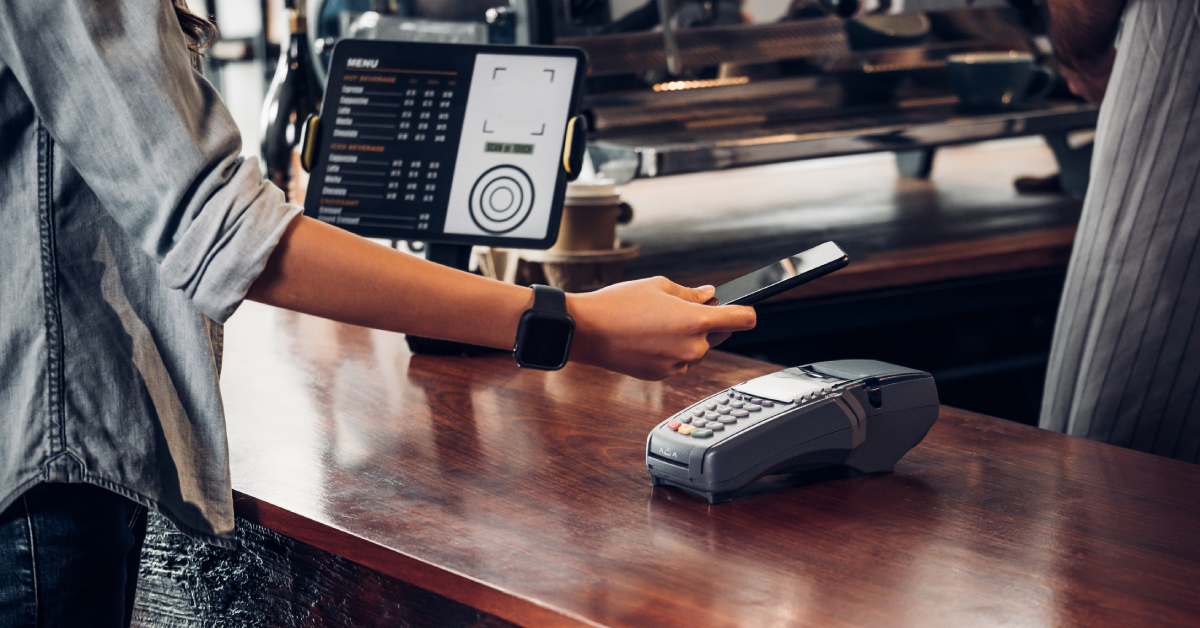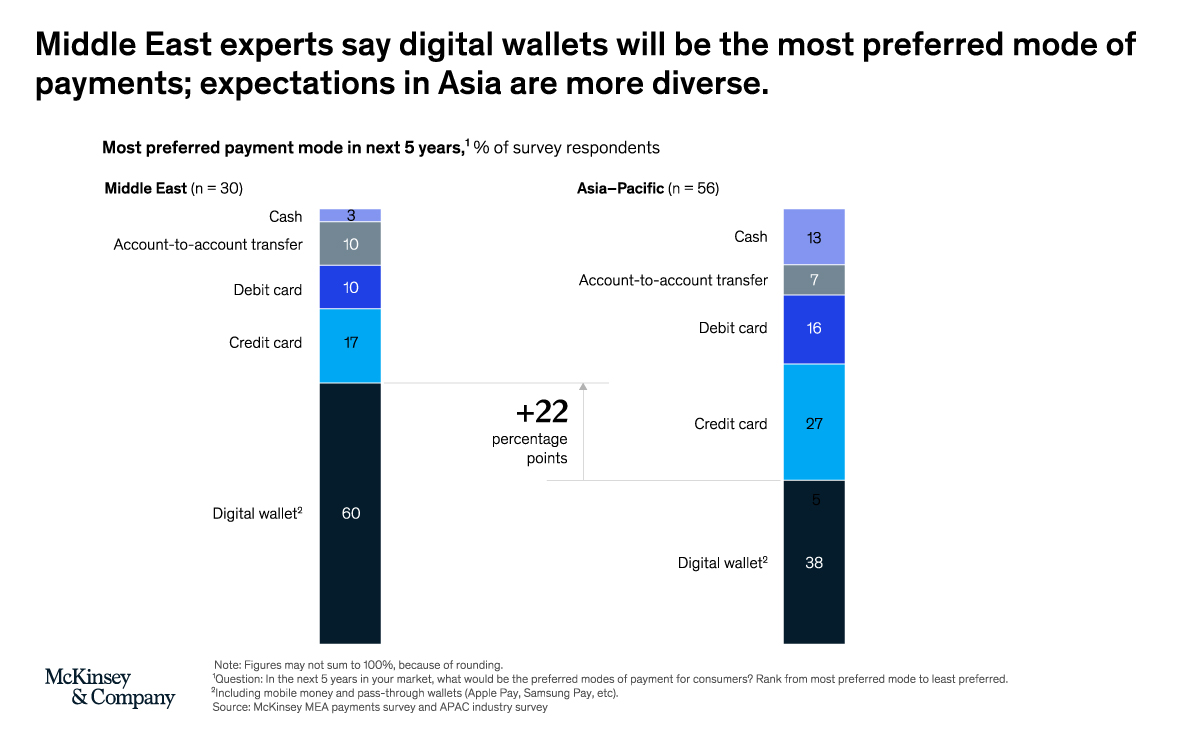The FinTech sector in the United Arab Emirates (UAE) and the Middle East is growing at a rapid pace.
Across the region, in emirates like Dubai and Saudi Arabia, the FinTech sector is developing with factors like the adoption of digital payments, a booming e-commerce economy, and transformative digital marketing initiatives leading the way.
In this article, we take a look at the current state of FinTech in the Middle East and its future trajectory as we move into 2022.
The State of FinTech in the Middle East
The Middle East spans three continents and comprises 21 countries boasting a population of almost 600 million. Perhaps one of the most culturally and economically diverse regions in the world, The Middle East also includes the seven emirates that make up the United Arab Emirates (UAE).
The UAE ranked first among the Arab nations in the Index of Modern Financial Technologies (FinxAr) by the Arab Monetary Fund, with an average of 75%. The index provides insights into the MENA region’s FinTech sector, including the adoption of digital financial services in Arab nations. The report identifies the “efforts of Arab countries in enabling and promoting FinTech adoption.”
Across the region, FinTech industries differ greatly, with the UAE boasting the most dynamic and exciting FinTech ecosystem and digital transformation initiatives in the Arab world. The UAE comprises 24% of the FinTech companies in the region, followed by Morocco and Egypt with 12% and Tunisia with 10%.
According to a recent report by FinTech New Middle East titled the UAE FinTech Report 2021, as of mid-2021, 134 FinTech companies were operating in the UAE. Within the industry, the leading segments in the UAE FinTech industry include e-wallets/digital payments, blockchain/cryptocurrency, and Insurtech. The UAE’s FinTech ecosystem is recognised for its supportive nature when it comes to young startups and venture capitals, with its private sector recognised for partnering with innovative FinTech companies.
The report highlights some of the key developments and emerging trends from the past year.
Shifting towards digital payments
The report emphasises the uptick in digital payment transactions that took place in 2020 due to the COVID-19 pandemic causing a shift from cash payments to digital payments due to lockdown restrictions. In the UAE, the value of digital payments has more than doubled in the last two years to reach a value of USD 18.5 billion in 2020.

According to McKinsey, even before the pandemic, digital payments were quickly gaining traction in the UAE. The number of digital payments made in the UAE grew at an annual rate of 9% between 2014 and 2019, which was much faster than Europe’s average annual growth rate of 4-5%. Saudi Arabia produced one of the most notable rises, with growth in card payments of over 70% between Feb 2019 and Jan 2020.
According to a survey by Mastercard, 97% of consumers surveyed in the UAE plan to try at least one new digital payment method including wearables, QR codes, biometrics, and digital currencies. Compare this to a global average of 93% in the report which polled 15,569 consumers across 18 countries. This shows that the Covid-19 pandemic has spurred UAE residents to try new payment methods due to shifting circumstances that meant traditional cash payments were no longer possible. In 2021, 88% of in-person transactions in the UAE are now contactless.
In the same survey, nearly 78% of respondents in the UAE said they intend to shop with retailers that offer consumers the latest digital payment methods. As UAE residents become increasingly interested in digital currencies, 50% of individuals say they plan on using cryptocurrencies within the next year.
Moreover, biometric verification is also gaining traction, with 68% of UAE users agreeing that they feel safer using biometrics as opposed to entering a PIN.
Additionally, the notion of digital wallets is also taking off in the UAE, with 66% of consumers reporting they plan on using digital wallets and 57% agreeing they feel safer storing their card information in a digital wallet, rather than physically.
The transition towards digital payments is also evidenced in consumers’ expressed preferences. A McKinsey consumer survey found that 58% of Middle Eastern consumers prefer digital payment methods, with just 10% preferring cash. The survey also asked payment practitioners about consumer payment preferences, with 60% of those surveyed agreeing that e-wallets were the most influential digital payment method.

As we move further into a post-pandemic world, digital payments will be central to the new normal in the UAE and the Middle East as a whole.
The rise of neobanks
Neobanks are banks that operate fully online without a physical location. Digital banking is another industry that’s seen extreme growth in the UAE as well as the broader Middle Eastern region. Data collected by Dutch FinTech consultancy group Fincog reveals that as of November 2020, there are over 20 neobanks operating in the region serving over 15 million customers.
Countries like Bahrain, Israel, Saudi Arabia, and the UAE have seen the launch of many neobanks in the last three years. However, despite recent growth in the last few years, the Middle East is still largely a paper-based environment, meaning there’s plenty of scope for further growth in the industry of neobanks. As banks all over the world underwent digital transformations in response to the COVID-19 crisis, technology and digital banking provided banks and their customers with increased resiliency, improved efficiency, and innovation opportunities for a better banking experience.
Some of the top neobanks in the UAE to keep an eye on in the region include Bahrain-based Bank ABC (Arab Banking Corporation) which revealed plans to launch a standalone neobank in 2018; Mashreq Neo by Mashreq Bank targeted towards the digitally-savvy connected generation; and CBD Now, a neobank by the Commercial Bank of Dubai aimed at tapping into a millennial market of smartphone users.
What does the future hold for FinTech companies in the Middle East?
The economy in the UAE isn’t expected to make a fast recovery from the 6.1% contraction in 2021. Its forecasted to grow by 4% in 2021, with its sluggish recovery attributed to right fiscal policy and a latent global economic recovery. However, there are some key areas we can expect to grow in the next few years.
For instance, the focus on open banking is predicted to grow rapidly as Middle Eastern countries focus on digitising payment systems to keep up with shifting consumer demands and expectations.
It’s also likely that an increasing number of banks will begin accepting other currency forms like Bitcoin and Altcoins as we move towards a cashless society. As COVID-19 brought about a fear of cash handling and a huge uptick in credit card fraud, cryptocurrencies will provide new levels of security for both customers and banks.

Another key trend we can expect to see in the UAE FinTech landscape is an increase in facial recognition technology being used by digital banks as an identity verification method. Banks that handle a huge amount of consumer biometric data are likely to adopt facial recognition technology as the new normal, with organisations like the National Institute of Standards and Technology (NIST) and Fast Identity Online (FIDO) Alliance developing frameworks that stipulate how banks must store and protect customer data.
As the FinTech industry evolves rapidly in a post-pandemic world, there’s a greater focus placed on digital banking and the risks associated with it. Consumers expect that their funds are safe and secure, which is why it’s important that digital banks find a balance between innovative technology and providing secure services to consumers. The aforementioned McKinsey report posits that the Middle East is “on the cusp of a payments revolution”. Nobody is sure exactly what the future holds, but as the country embraces digital transformation the FinTech industry is guaranteed to excel and expand in the coming years.
Ready to start marketing your FinTech business in the UAE?
If you want to know more about starting and marketing a FinTech business in the UAE, you’re in the right place. When it comes to FinTech, the competition is going to be stiff in the coming years. As start-ups and investors recognise the importance and growing demand for the FinTech sector, you’ll need to use digital marketing and SEO strategy to get ahead and stay ahead in this lucrative industry.
Get in touch with our team and book a free consultation today and find out how YourTarget can help.

